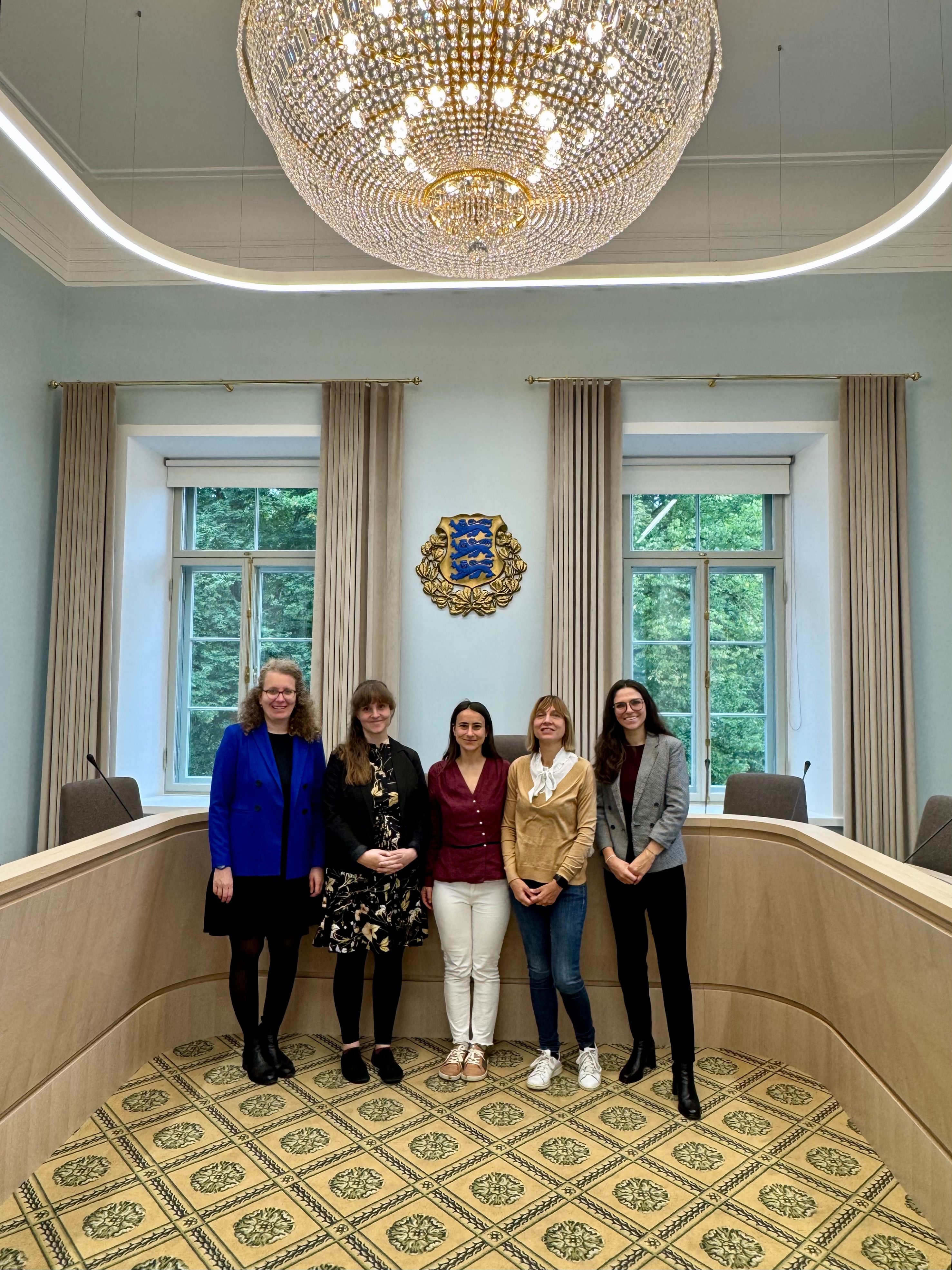This exchange programme of the European Judicial Training Network (EJTN) began on 8 September with a three-day visit to Estonia by Dietmar Striegan, the president of the Weiden Labour Court in Germany. Judges from Germany, France, Italy, Czechia and Romania also came to the country as part of the programme from 15-19 September.
Visits were made to the Ministry of Justice and Digital Affairs, the Office of the Chancellor of Justice, the Prosecutor’s Office, the Estonian Bar Association, the Faculty of Law of the University of Tartu, Harju District Court and the circuit courts of both Tallinn and Tartu. The guests also visited the Supreme Court, where they were welcomed by justices Kaupo Paal, Kai Kullerkupp, Vahur-Peeter Liin and Kalev Saare and counsel Maarja Torga from the Civil Chamber, and Justice Paavo Randma and counsel Kaisa Tiru from the Criminal Chamber.
Kristin Kink, an adviser of the Legal Information and Judicial Training Department of the Supreme Court and the programme’s organiser, says the visitors were primarily interested in the digital solutions available in Estonia – of which they gained a comprehensive overview, since this year’s programme started at the e-Estonia Briefing Centre.
“The judges were very happy with the programme,” Kink said. “They had some great things to say about their hosts and how welcome they made them feel, and they were particularly pleased to be able to meet with justices from the Supreme Court. They said that Estonia’s digital development has been noticeably faster than in their own countries, and that they would happily adopt quite a few of the solutions we use in our courts.”
Further information:
Kristin Kink
Adviser, Legal Information and Judicial Training Department
kristin [dot] kink riigikohus [dot] ee
riigikohus [dot] ee  Riigikohus on Eesti Vabariigi kõrgeim kohus.
Riigikohus on Eesti Vabariigi kõrgeim kohus.


